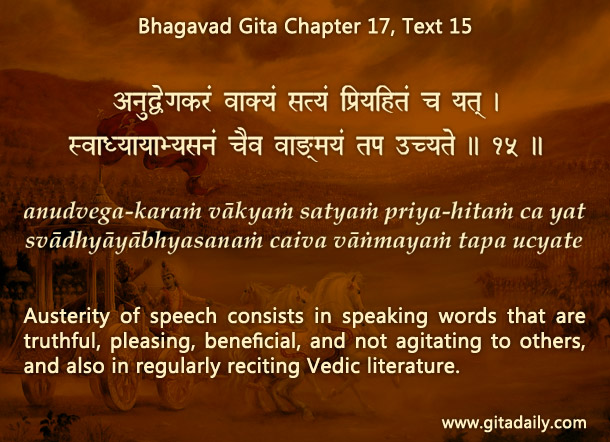Suppose a surgeon is operating on a patient. Naturally, the surgeon needs to give anesthesia so that the patient’s pain while being operated is minimized. Not giving anesthesia is cruelty, but then so is not doing the surgery. If the surgeon merely gives the anesthesia without doing surgery, the patient will stay sick, even if the sickness is not immediately felt.
In spiritual circles, words of wisdom are often compared to a surgeon’s scalpel. The sickness afflicting all of us is misdirection of our love: although we are eternal spiritual beings, we are attached to temporary material things, hoping to find lasting pleasure therein. Words of spiritual wisdom expose our misconceptions about life and its purpose, thus jolting us out of our illusions. Further, they guide us to redirect our love from the world to its all-attractive source, Krishna, thereby enabling us to find lasting happiness. The Bhagavad-gita is a par excellence example of such words of wisdom.
When we share Gita wisdom, we too are trying to perform a surgery. The Bhagavad-gita (17.15) guides us to use words that embody both anesthetic sensitivity and surgical efficacy: it urges us to speak both sensitively and truthfully. If we aren’t sensitive, we are performing surgery without giving anesthesia. To be sensitive, we need to use words that are kind, courteous and respectful, thus helping our audience to feel valued and affirmed. Such positive feelings make them more receptive to hear subsequent less-than-palatable words of wisdom. But if we just speak sweet-sounding words without speaking the truths necessary for their spiritual healing, then we are hiding their sickness, thus doing a disservice.
By ensuring that our courteous words prelude the Gita’s core message of inner redirection, we can help minimize people’s mental agitation while also offering them the necessary spiritual illumination.
To know more about this verse, please click on the image
Explanation of article:
Podcast:
Download by “right-click and save”


Leave A Comment